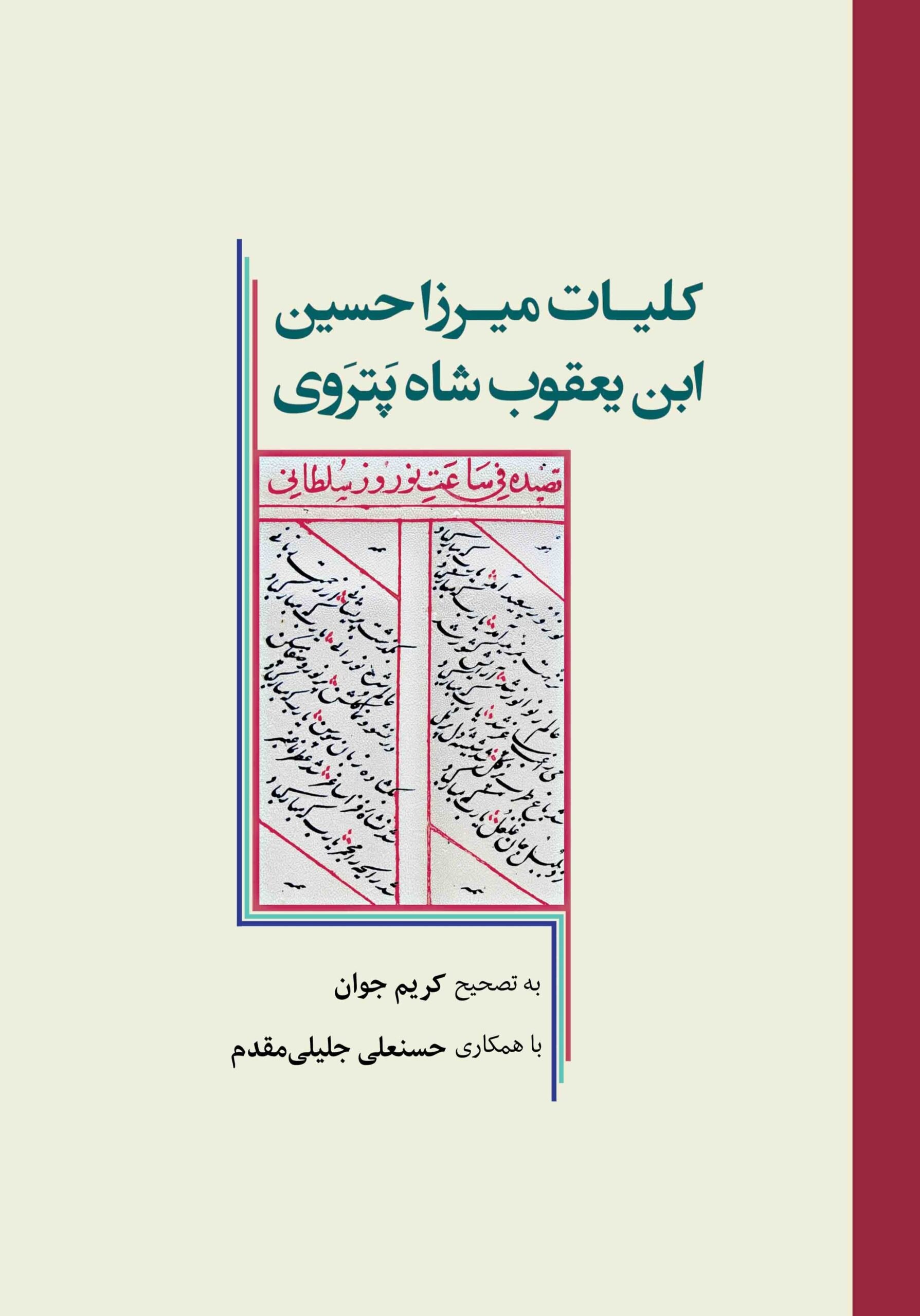Kulliyyāt-i Mīrzā Ḥusayn b. Yaʿqūb Shāh Patrawī contains the collected poems of Ḥusayn b. Yaʿqūb Shāh Patrawī (known as Mīrzā Ḥusayn, b. 1047/1637). He was one of the most learned dāʿīLit. ‘summoner,’ a term for missionary amongst various Muslim communities, especially used among the Ismailis before and during the Fatimid period as well as in the Alamut period of Ismaili…s (missionaries) and authors of the Nizārī Ismaili tradition in Iran at his time. The information available about him is limited, and most of it is taken from his own poems and treatises. Poems by his father, Yaʿqūb, and his grandfather, Ṣūfī, show that they were learned people who occupied the highest positions in the leadership of the Ismaili community in Khurāsān. According to the sources, Mīrzā Ḥusayn was born into a family that had held the position of dāʿī or religious teacher in the Ismaili daʿwaLit. ‘summons’, ‘mission’ or invitation to Islam. Amongst Shi’i Muslims, it was the invitation to adopt the cause of the Imamat. It also refers more specifically to the hierarchy of… organisation for several generations. It seems that this family first lived in Patraw in the Khwāf district near Herat and Mashhad. Despite dying young (after 1072/1661), Mīrzā Ḥusayn authored many works of prose and poetry. These works show that he was an eloquent poet and orator. His most famous work is Tazyīn al-majālis which was written in both prose and poetry on four important festive occasions in the tradition of Iranian IsmailisAdherents of a branch of Shi’i Islam that considers Ismail, the eldest son of the Shi’i Imam Jaʿfar al-Ṣādiq (d. 765), as his successor.. He also wrote several qaṣīdas in praise of Imam Khalīl Allāh II. There are many other poems in the forms of mathnawīPersian term for poems differing greatly in genre and length, normally composed in rhyming couplets. and qaṣīda by Mīrzā Ḥusayn that have been found in Ismaili manuscripts and were probably part of his Dīwān. Unfortunately, his Dīwān has not survived in its complete form. This edition includes all works identified to date by this author. However, it cannot be ruled out that after more research, further works by this author may be found.

